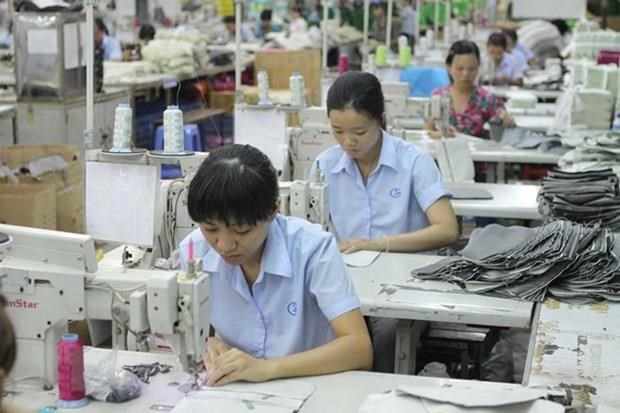Amendments suggested to revised Labour Code draft
A conference took place in Hanoi on September 11 to collect social opinions on the revised Labour Code draft from the angle of gender equality.
 Illustrative image (Photo: VNA)
Illustrative image (Photo: VNA)Hanoi (VNA) – A conference took place in Hanoi on September 11 to collect social opinions on the revised Labour Code draft from the angle of gender equality.
Based on the fact that female employees are having lower incomes compared to their male peers of the same profession, educational level, and geographical location, participants recommended the draft include a regulation on setting up a legal framework for gender equality to handle the gap.
Dang Nhu Loi, former deputy head of the National Assembly Committee for Social Affairs, said when difficulties arise, employers from the private sector, particularly foreign-invested firms, tend to end labour contracts or fire workers rather than working on reusing the workers for other occupations and improving working environment.
It causes harmful impact on employees and a burden for both the Government and society, he added, noting that the draft, however, does not regulate such issue.
Some delegates pointed to the current regulation that forbids employers from using seven-month pregnant workers (or six-month ones in mountainous, remote, or island areas) for night shifts, extra working hours, or business trips to faraway places.
They were against a change made to the regulation by drafters of the revised code which states that employers cannot do such things mentioned above without acceptance from the workers.
Delegates said employers can take advantage of the flexible content or persuade the pregnant women to accept the job that can inflict negative consequences on their health.
Tran Thi Huong, a worker at the Ha Long Canned Food Joint Stock Corporation, said the draft regulation on increasing retirement ages for both sexes ought to be specific for each sector.
The newly proposed regulation on cutting working hours from 48 to 44 hours per week also faced disagreement from many enterprises who argued that 48 hours a week is a standard in Vietnam’s competitors in terms of labour sources like Thailand and India. They said the reduction is likely to weaker the country’s competitiveness and pose risks of bankruptcy to businesses.-VNA












